Description
CMG3701 Assignment 4 Memo | Due 21 August 2025. All questions fully answered. SECTION A
Question 1 (25 marks)
1.1 Explain the concept of loco parentis and identify the specific duties of care
Progressive Pathways Academy and its staff assumed towards Thabo
and Lerato during the school trip. (4 marks)
1.2 Given the principle of loco parentis, analyse how Mr Dlamini’s decision to
immediately send Thabo and Lerato home from Kruger National Park, especially at
night, aligns with or deviates from the expected standard of care for a responsible
parent or guardian. (4 marks)
1.3 Differentiate between the school’s general duty of supervision and its specific
duty of care under loco parentis in the context of the learners’ safety during the
excursion. Was Mr Dlamini’s action fundamentally flawed in its application of this duty?
(4 marks)
1.4 Describe the core requirement of the audi alteram partem rule
and explain why it is a fundamental principle in disciplinary proceedings. (4 marks)
1.5 Illustrate how Mr Dlamini’s immediate decision to send the
learners home, without a formal hearing or full opportunity for their input (including
Lerato’s peer pressure claim), might be perceived as a violation of the audi alteram
partem rule. (4 marks)
1.6 Deconstruct the tension between the immediate need for safety
measures during an ongoing excursion and the procedural demands
of the audi alteram partem rule. Propose how these two competing interests could
have been balanced effectively by the school. (5 marks)
Question 2 (25 marks)
2.1 Define what constitutes a “conflict of learners” in a disciplinary context, using
Thabo and Lerato’s situation as an example. (3 marks)
2.2 Demonstrate how Progressive Pathways Academy should practically
approach Lerato’s confidential confession of peer pressure from Thabo,
ensuring that Lerato’s perspective is heard without compromising her
safety or rights. (6 marks)
2.3 What considerations should be made regarding their respective levels of
culpability and the disciplinary action taken against each of them? (4 marks)
2.4 Distinguish between the terms ultra vires and intra vires in the context of
institutional powers, as they relate to a school principal’s authority. (4 marks)
2.5 Determine whether Mr Dlamini’s immediate decision to send the learners home,
without following explicit policy procedures for a formal hearing, would likely be
categorised as ultra vires or intra vires based on typical school
governance structures. (4 marks)
2.6 Examine the specific clauses within the PPA Excursion Policy and Code of
Conduct that Mr Dlamini’s actions might have bypassed, leading to an ultra vires
finding. Contrast this with actions that would clearly be intra vires
while still maintaining discipline. (4 marks)
Total: 50 marks
Question 3 (25 marks)
3.1 Identify and briefly describe the core rights of a learner that Mr and Mrs Ncube
alluded to under the South African Schools Act (SASA) and the Constitution that
should guide the school’s response to learner discipline. (6 marks)
3.2 Apply the principles of procedural fairness, as potentially informed by the BELA
Act regarding disciplinary processes, to Mr Mkhize’s immediate suspension of Sipho.
Did he adhere to these principles? Justify your answer. (6 marks)
3.3 Analyse the legal complexities arising from Mr Mkhize’s demand
for payment for the broken window. How should the school, guided
by SASA and principles of accountability, legitimately deal with the damage
caused by Sipho? (8 marks)
3.4 Evaluate the effectiveness of Mr Mkhize’s “zero-tolerance” approach in dealing
with learner discipline and violence at Rainbow High School, considering both the
legal frameworks (SASA/BELA) and the broader goal of fostering a positive school
environment. (5 marks)
Question 4 (25 marks)
4.1 Define what constitutes “violence in schools” in the context of
the scenario, and explain why Sipho’s act, despite his stated intent,
falls under this definition. (3 marks)
4.2 Based on the scenario, identify two potential underlying factors
contributing to Sipho’s disruptive and aggressive behaviour. Suggest a
specific, immediate intervention the school could have considered, besides
suspension, for Sipho following the incident. (4 marks)
4.3 Analyse the limitations of using only punitive measures (like suspension) to
handle persistent disruptive behaviour and violence in schools. What
broader, more comprehensive strategies should Rainbow High School consider? (4
marks)
4.4 Evaluate the potential long-term impact of Mr Mkhize’s approach
on Sipho’s educational trajectory and overall well-being, contrasting it with an
approach that integrates support and restorative practices. (4 marks)
4.5 Briefly explain the primary purpose of the Department of
Basic Education’s (DBE) progression policy in South African schools. (3 marks)
4.6 In light of the progression policy, what specific criteria or considerations would Mr
Mkhize need to justify his intention to retain Sipho again, beyond merely citing his
academic performance and the recent disciplinary incident? (3 marks)
4.7 Analyse the tension between the school’s desire to maintain academic standards
and discipline, and the implications of the progression policy for learners like Sipho.
How does Sipho’s age factor into this tension? (4 marks)
SECTION A (50 marks) and SECTION B (50 marks). TOTAL: 100 MARKS

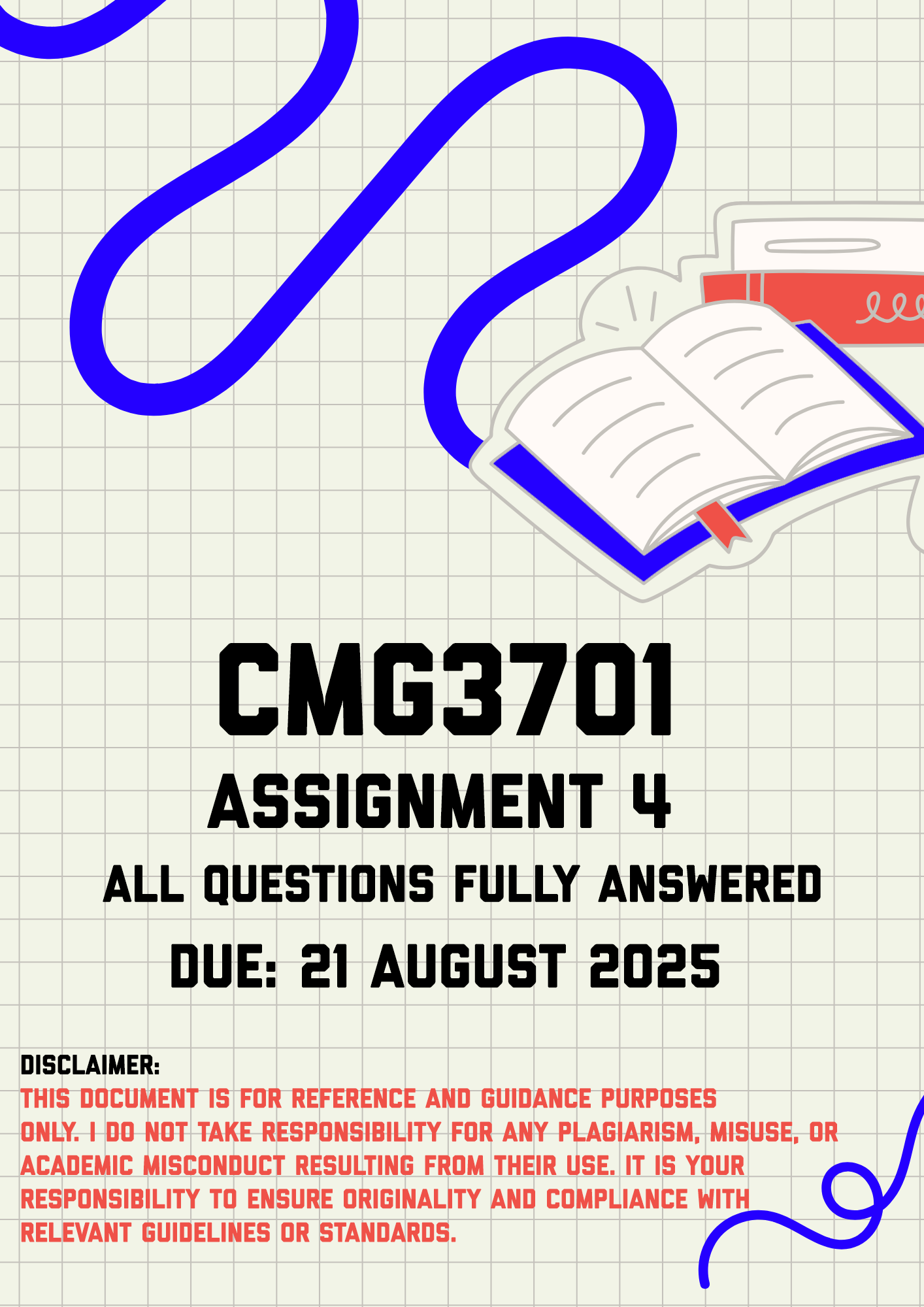


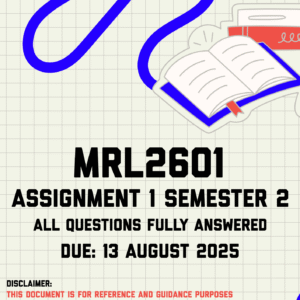



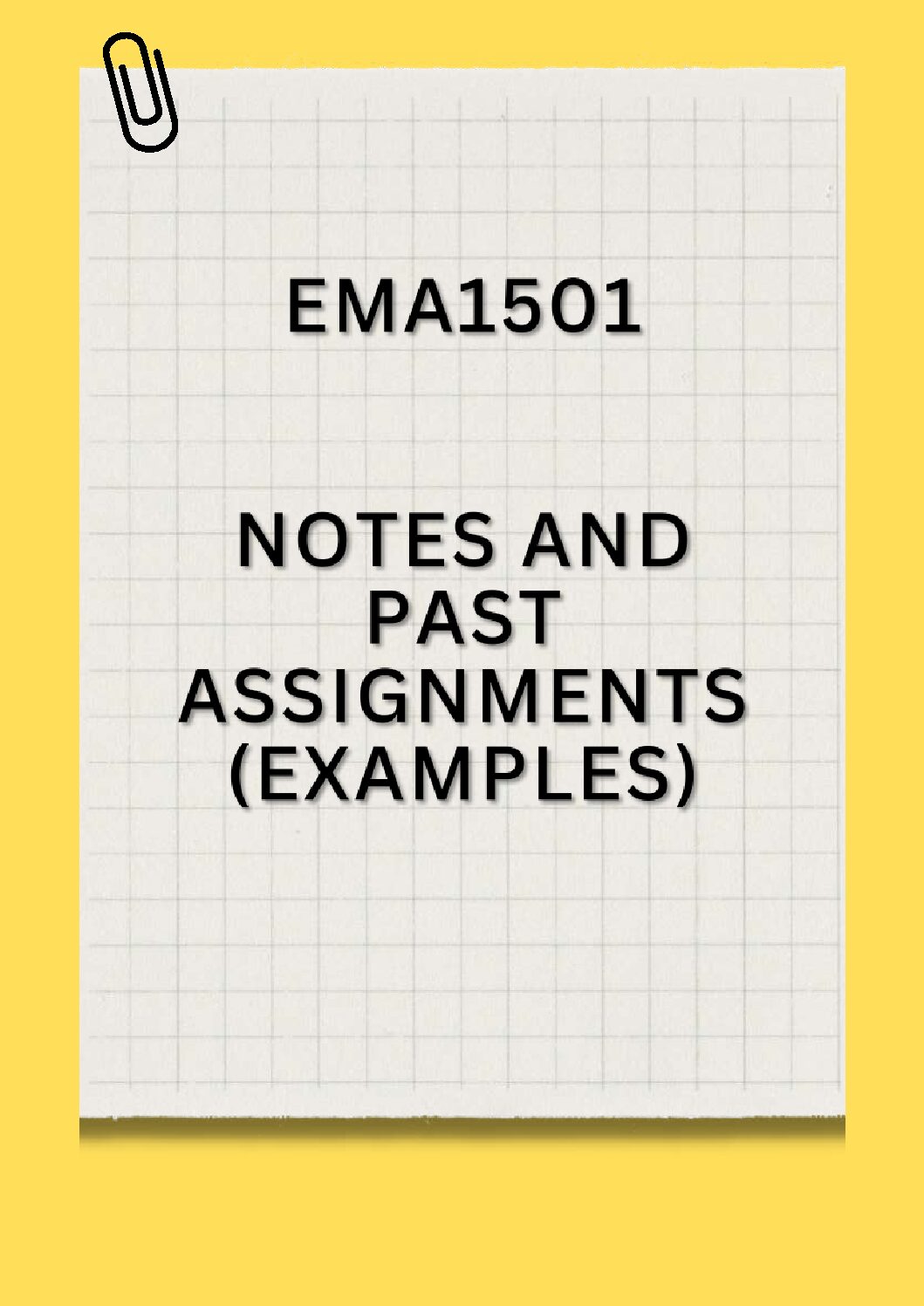
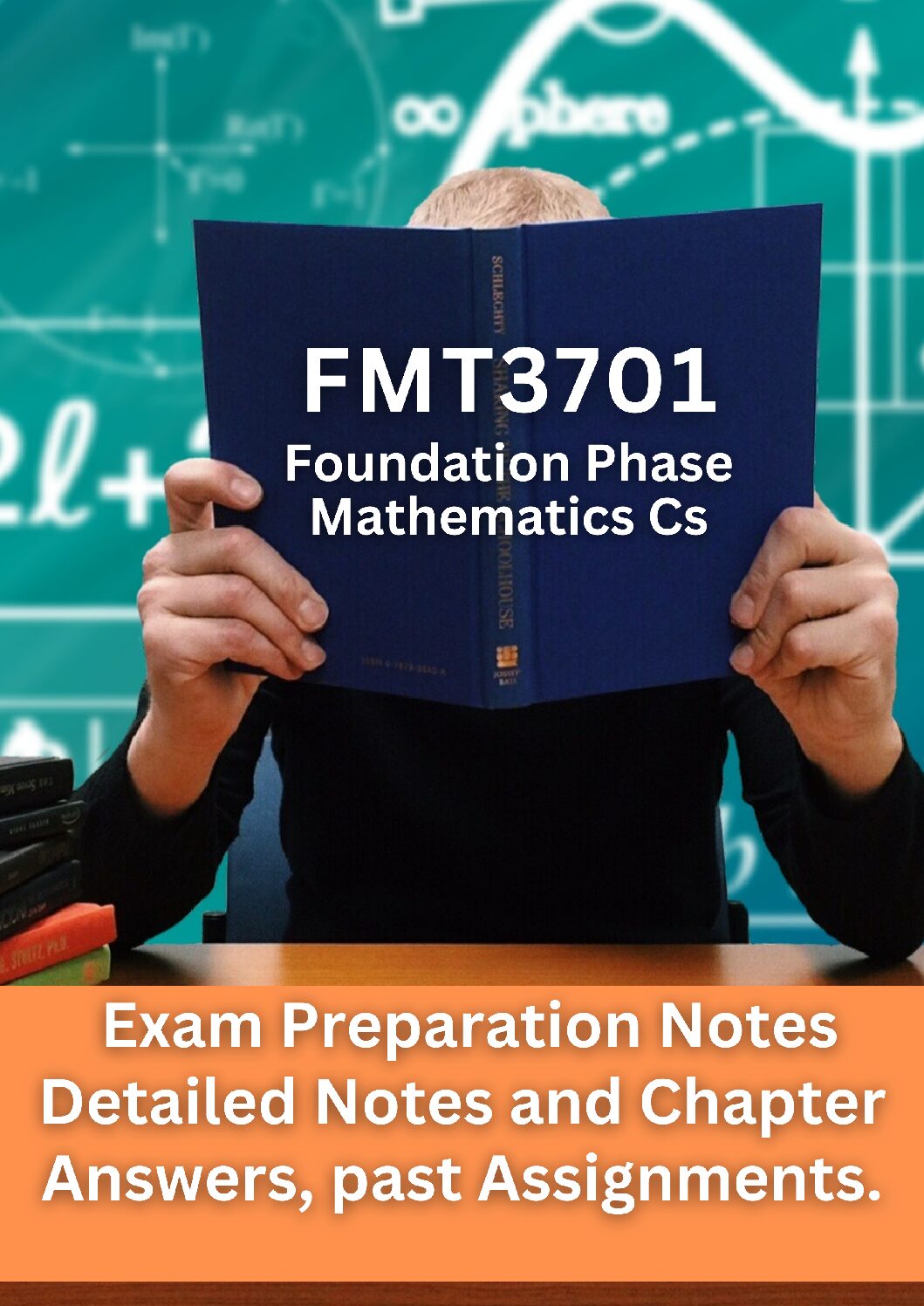

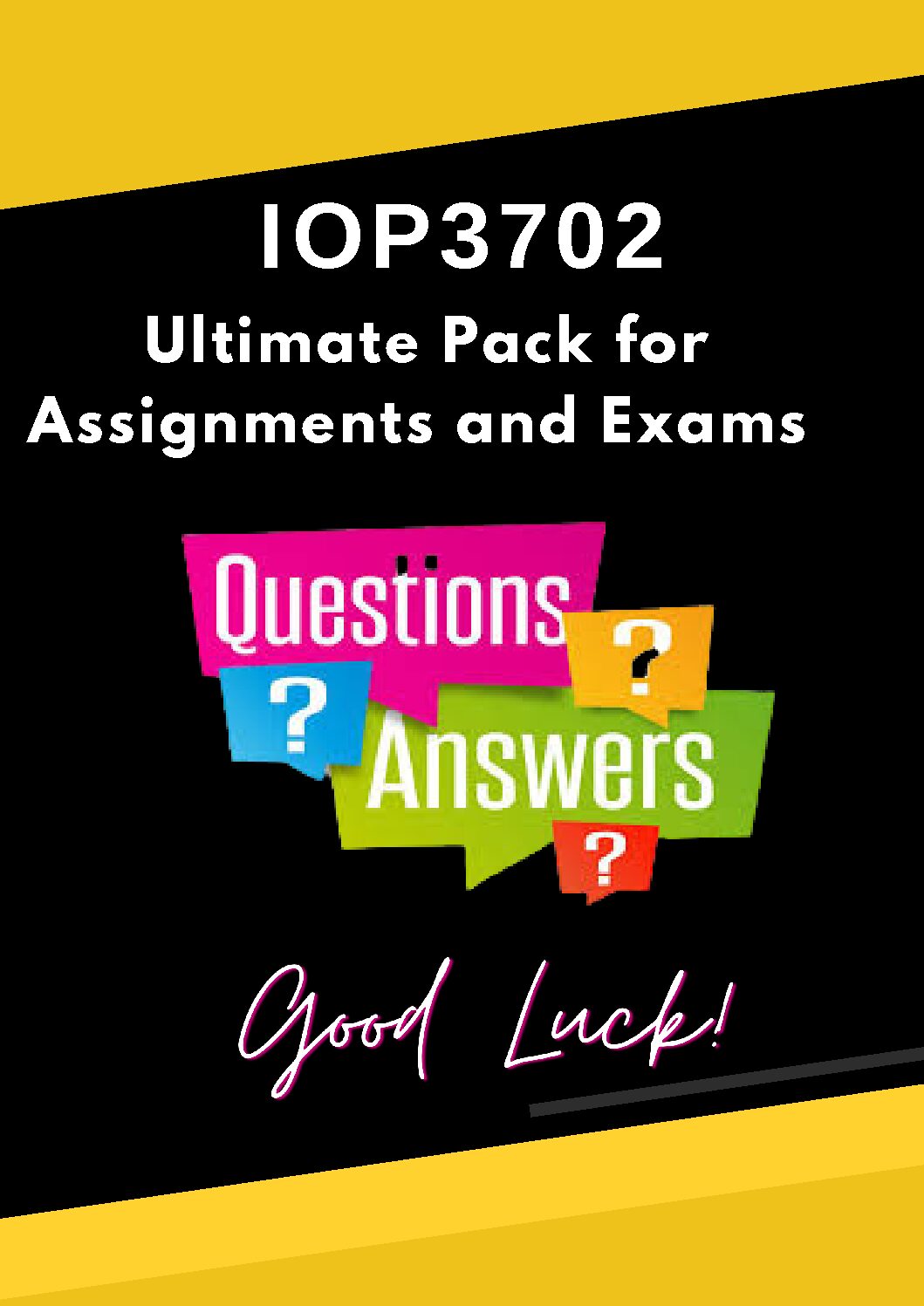
Reviews
There are no reviews yet.